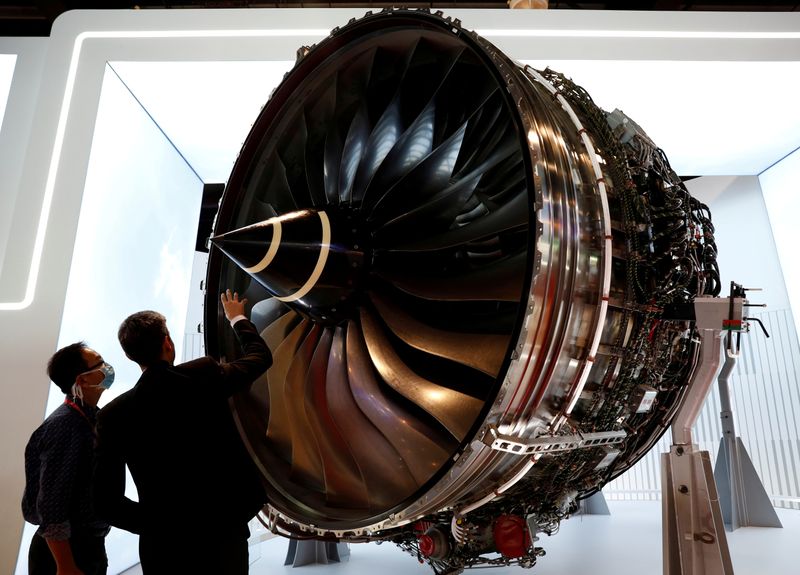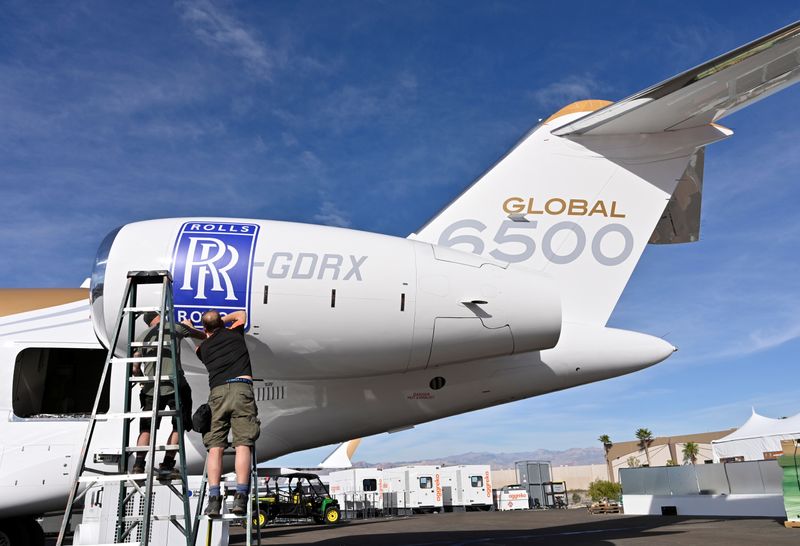LONDON (Reuters) - British engineering company Rolls-Royce (OTC:RYCEY) raised 2 billion pounds ($2.6 billion) from a rights issue on Thursday to bolster its pandemic-hit finances, after shareholders signed up for 94% of the new shares and the rest were sold via a rump placing.
Airlines pay Rolls-Royce based on how many hours its engines fly, so the company's finances have come under increasing pressure after COVID-19 stopped travel earlier this year.
The equity raise unlocks new debt options for the company including 2 billion pounds from a bond issued in October and a bank loan worth 1 billion pounds, as part of a total 5 billion pound liquidity package.
The overwhelming majority of shareholders backed the equity raise, but the results showed there were some dissenters to the issue from what is one of Britain's best known industrial names, with 6% of the new shares issued not initially taken up.
The company said in a statement that 10 underwriting banks including Citigroup (NYSE:C), Goldman Sachs (NYSE:GS) and Morgan Stanley (NYSE:MS) had successfully procured subscribers for the rest of the shares.
Chief Executive Warren East Rolls-Royce can ride out COVID-19 with the new liquidity package and by cutting 1.3 billion pounds in costs, axing 9,000 jobs and closing factories to adjust to lower demand from airline customers that fly with the firm's engines on Boeing (NYSE:BA) 787s and Airbus 350s.
Shares in the company traded down 8% at 90 pence at 1240 GMT. In the rump placing, the new shares were sold at a price of 90 pence per share, the company said.
The stock has had a rollercoaster week. Boosted by news of a vaccine, the shares rocketed by over 90% at one stage on Monday, but closed down 10% on Wednesday. They have lost 61% of their value in the year to date.

